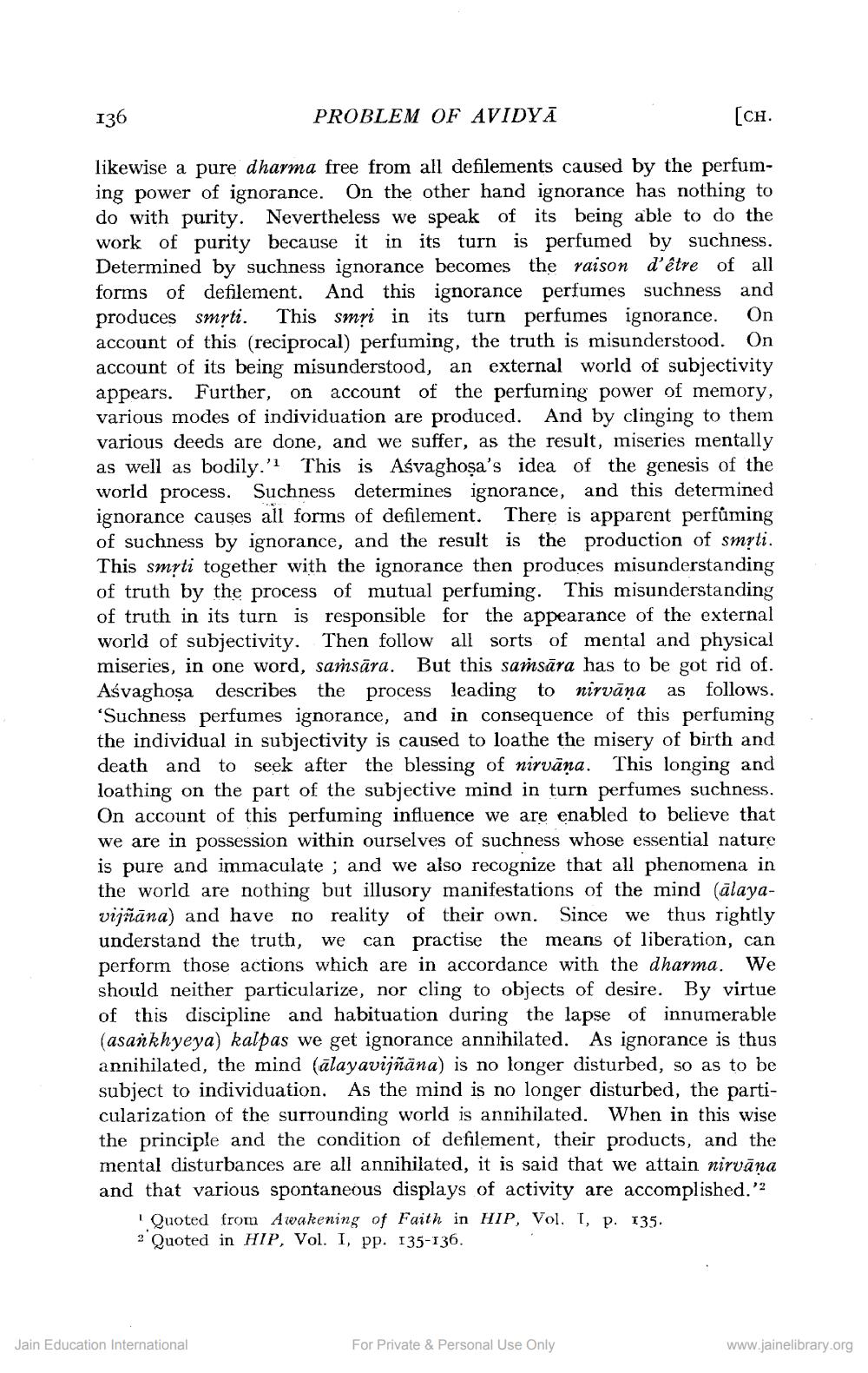________________
136
PROBLEM OF AVIDYA
[CH.
likewise a pure dharma free from all defilements caused by the perfuming power of ignorance. On the other hand ignorance has nothing to do with purity. Nevertheless we speak of its being able to do the work of purity because it in its turn is perfumed by suchness. Determined by suchness ignorance becomes the raison d'être of all forms of defilement. And this ignorance perfumes suchness and produces smrti. This smri in its turn perfumes ignorance. On account of this reciprocal) perfuming, the truth is misunderstood. On account of its being misunderstood, an external world of subjectivity appears. Further, on account of the perfuming power of memory, various modes of individuation are produced. And by clinging to them various deeds are done, and we suffer, as the result, miseries mentally as well as bodily.'! This is Ašvaghosa's idea of the genesis of the world process. Suchness determines ignorance, and this determined ignorance causes all forms of defilement. There is apparent perfůming of suchness by ignorance, and the result is the production of smrti. This smyti together with the ignorance then produces misunderstanding of truth by the process of mutual perfuming. This misunderstanding of truth in its turn is responsible for the appearance of the external world of subjectivity. Then follow all sorts of mental and physical miseries, in one word, samsāra. But this saṁsāra has to be got rid of. Asvaghosa describes the process leading to nirvana as follows. 'Suchness perfumes ignorance, and in consequence of this perfuming the individual in subjectivity is caused to loathe the misery of birth and death and to seek after the blessing of nirvāņa. This longing and loathing on the part of the subjective mind in turn perfumes suchness. On account of this perfuming influence we are enabled to believe that we are in possession within ourselves of suchness whose essential nature is pure and immaculate ; and we also recognize that all phenomena in the world are nothing but illusory manifestations of the mind (ālayavijñāna) and have no reality of their own. Since we thus rightly understand the truth, we can practise the means of liberation, can perform those actions which are in accordance with the dharma. We should neither particularize, nor cling to objects of desire. By virtue of this discipline and habituation during the lapse of innumerable (asankhyeya) kalpas we get ignorance annihilated. As ignorance is thus annihilated, the mind (ālayavijñāna) is no longer disturbed, so as to be subject to individuation. As the mind is no longer disturbed, the particularization of the surrounding world is annihilated. When in this wise the principle and the condition of defilement, their products, and the mental disturbances are all annihilated, it is said that we attain nirvana and that various spontaneous displays of activity are accomplished."
Quoted from Awakening of Faith in HIP, Vol. I, p. 135. 2 Quoted in HIP, Vol. I, pp. 135-136.
Jain Education International
For Private & Personal Use Only
www.jainelibrary.org




